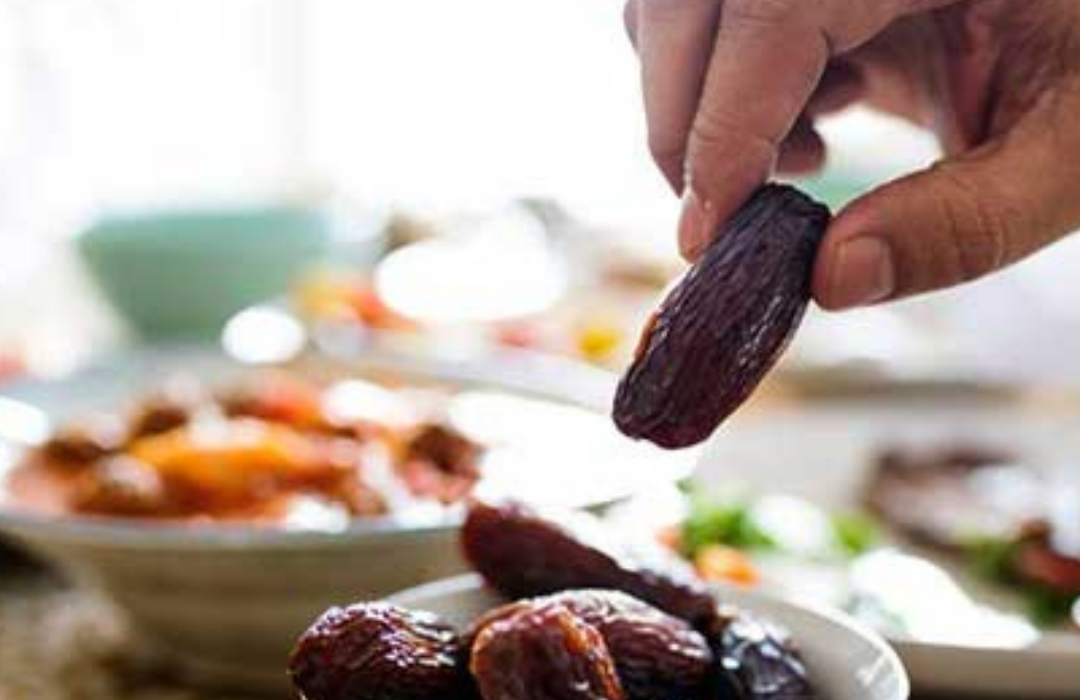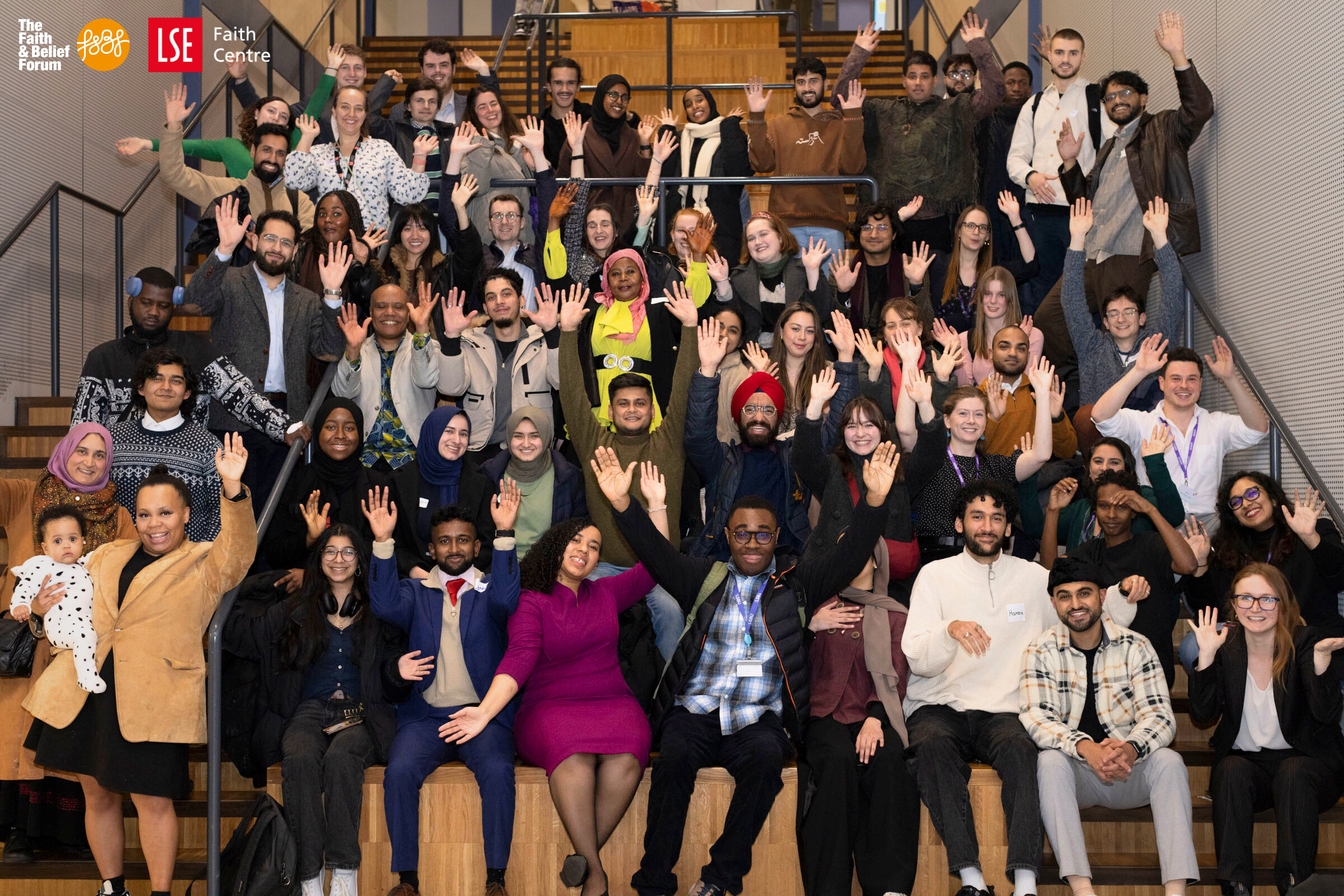
Statement on Hate Crime in UK – 19th February 2024
19 / 02 / 24
Menu

04 / 05 / 21

by Raahim Zafar
The Faith and Belief Forum will be guest speakers at the Ramadan Tent Project’s Open Iftar on Wednesday 5th May. We have two amazing speakers, Zain and Jonathan, who have been participants in our programmes work who will be sharing their stories on the theme of “Faith in Non-Faith Spaces.” Sign up on our Eventbrite to receive an invite.
______
It’s 4am. The calendar says that dawn prayer, the time by which you have to stop eating, is at 4:06. You woke up 3 minutes ago.
Welcome to an experience that, no doubt, every Muslim the world over has had to endure at some point in their lives. You think back to high school science class : what are the most tactical foods to eat? Should I just gulp in a gallon of water in the few minutes that remain? No doubt, many world records have been broken in the small hours of the night.
Your phone has just beeped. It’s 4:06. Surely God wouldn’t mind if I had another bite? Is God so petty as to care about just one sip of water? Why does God want to make us suffer by having us fast for 18 hours?
We’ll get back to that classic crisis of faith in a moment.
Before the advent of prayer time apps and astronomical calculations, people would gaze upon the Eastern horizon, awaiting the astronomical event known as fajr (dawn) to arise, and the consequent call to prayer to be given, at which point they would stop eating. Unfortunately, today we live in light-polluted cities or are just generally reliant on technology, so very few of us actually observe this astronomical phenomenon which is visible every day – unless, like myself, you live in the North of England. Even if we were to see it, most of us would not recognize what is happening because we are so disconnected from the skies. To complicate matters further there is a phenomenon on the horizon known as al-fajr al-kadhib, the False Dawn, which precedes from the, you guessed it, True Dawn, al-fajr al-sadiq.
Oh, but there you have it again, does it particularly matter which dawn is which? I’m going to pray at the end of the day, what’s the big deal?
In the month of Ramadan, healthy Muslims fast and forego eating, drinking, and conjugal relations during the daytime. Not only are all these activities natural and permissible activities every other time of year, but all of them form the basis of the survival of the human race. These things are halal (permissible) 11 months of a year, so why do they become haram (forbidden) during the month of Ramadan?
Eating and drinking are required by the body to survive and, hence, God has placed in each person a natural desire to pursue them. Desires are not inherently bad things. It might come across as surprising given popular representations, but Islam is very sex positive. The vast spectrum of Islamic knowledge ranges from narrations of the Prophet Muhammad (saw) emphasising the importance of foreplay, to some Muslims of the mystical leaning understanding the act of a man and woman coming together as a manifestation of divine union and Oneness.
This is the most interesting way I ever heard sex being described: just as it is the human being’s goal to become one with the will of God, the moment of matrimonial union is a confluence of the two greatest creations of God: woman and man. The mystics say that each creation manifests in its own way something of the Creator’s infinite divine names, but men and women are the loci where all those names converge – albeit it to differing degrees. Their union symbolises completion and perfection.
This is all wonderful and sounds nice and spiritual, but here is the snag: while eating, drinking and sexual intimacy are from the blessings of God and means through which one can experience his wonders, there are certain food and drink that are forbidden, and sex outside of marriage is also haram. Why? Because it’s not about blindly pursuing those desires, but trusting what God has commanded you to do and taming yourself so those desires serve their intended purpose and don’t lead you to spiral out of control.
Which brings us back to the faith crises earlier in the blog. Often times, people I have spoken to might have felt God is a control freak with all these rules and restrictions. I’m not pretending I haven’t felt the same. As I came to understand more of the nature of the human being though as posited by the Quran, I started to look at it differently.
The human being is not just body, but an animalistic self (nafs) combined with a divine spirit (rooh) that God blew directly into Adam. The human being can feed the nafs or pursue the higher realities of the rooh, but not both at the same time. God has created the cosmos for the sake of the development of the human being and established a system through which the children of Adam can grow towards him if they so choose. The Quran mentions that every creation in the heavens and the earth- animate or inanimate- is aware of God and glorifies the Divine in its own way. But they are fixed in their knowledge and position. Human beings uniquely possess potential to grow – and they have to freedom to choose not to.
Each desire serves a function for the overall development of the human being, but too much of a good thing, or a good thing at the wrong time or in the wrong amount, can be detrimental to the body, spirit or both of the human being. When rules, prayers and fasting are seen through this lens, it makes more sense. When you stop eating at 4:06 and don’t have that extra glass of water that would take you to 4:06 and 7 seconds, you are denying the nafs and strengthening the rooh. Every time you do something that you yourself do not necessarily want, but it is clear to you that this is God’s command, you are further abasing the nafs. Over the course of years and a lifetime, this awakens more and more of the divine spirit mentioned in the Quran. It awakens a higher state of consciousness, a different type of being, and a new mode of existence.

19 / 02 / 24

16 / 02 / 24

16 / 02 / 24